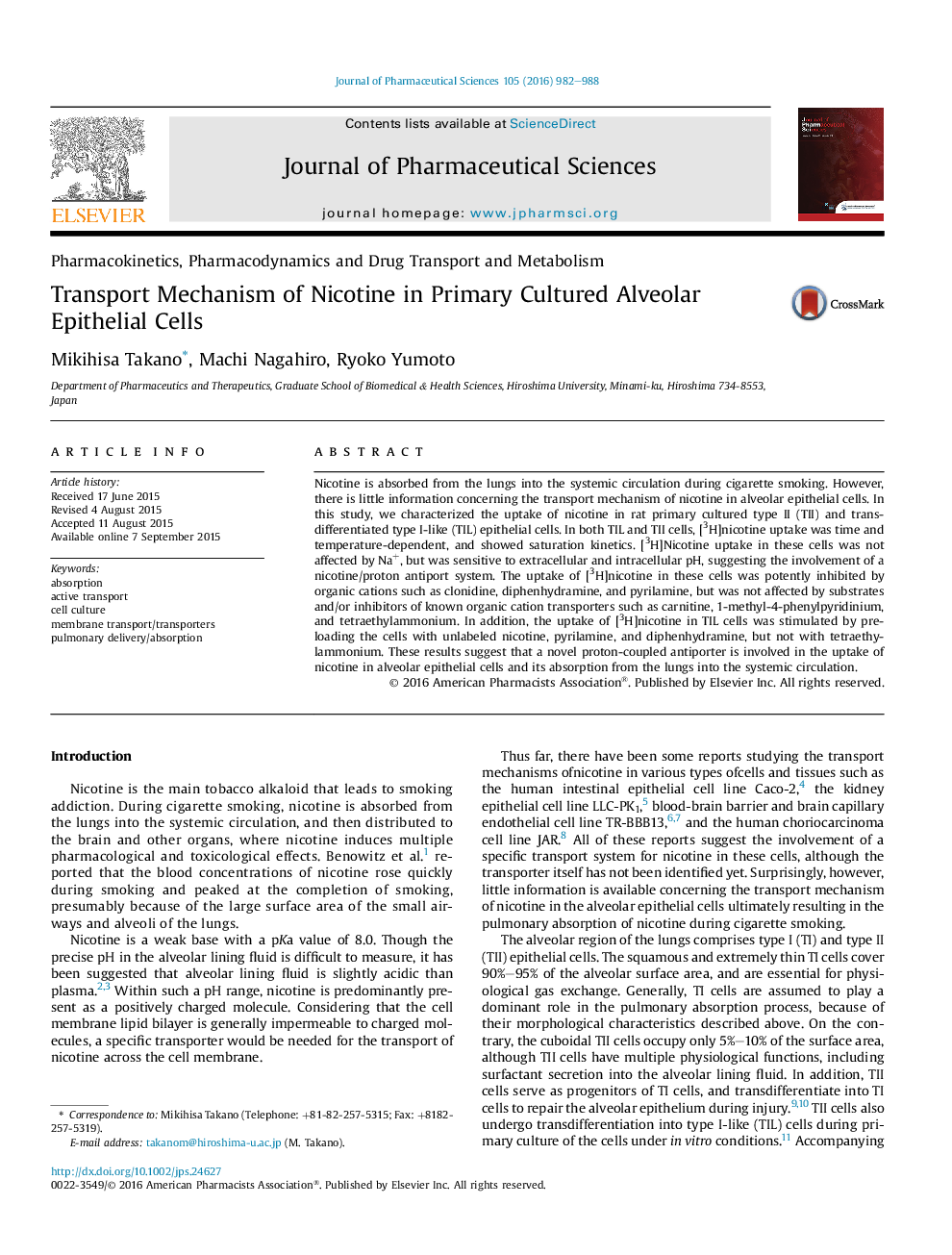| Article ID | Journal | Published Year | Pages | File Type |
|---|---|---|---|---|
| 2484303 | Journal of Pharmaceutical Sciences | 2016 | 7 Pages |
Abstract
Nicotine is absorbed from the lungs into the systemic circulation during cigarette smoking. However, there is little information concerning the transport mechanism of nicotine in alveolar epithelial cells. In this study, we characterized the uptake of nicotine in rat primary cultured type II (TII) and transdifferentiated type I-like (TIL) epithelial cells. In both TIL and TII cells, [3H]nicotine uptake was time and temperature-dependent, and showed saturation kinetics. [3H]Nicotine uptake in these cells was not affected by Na+, but was sensitive to extracellular and intracellular pH, suggesting the involvement of a nicotine/proton antiport system. The uptake of [3H]nicotine in these cells was potently inhibited by organic cations such as clonidine, diphenhydramine, and pyrilamine, but was not affected by substrates and/or inhibitors of known organic cation transporters such as carnitine, 1-methyl-4-phenylpyridinium, and tetraethylammonium. In addition, the uptake of [3H]nicotine in TIL cells was stimulated by preloading the cells with unlabeled nicotine, pyrilamine, and diphenhydramine, but not with tetraethylammonium. These results suggest that a novel proton-coupled antiporter is involved in the uptake of nicotine in alveolar epithelial cells and its absorption from the lungs into the systemic circulation.
Keywords
Related Topics
Health Sciences
Pharmacology, Toxicology and Pharmaceutical Science
Drug Discovery
Authors
Mikihisa Takano, Machi Nagahiro, Ryoko Yumoto,
